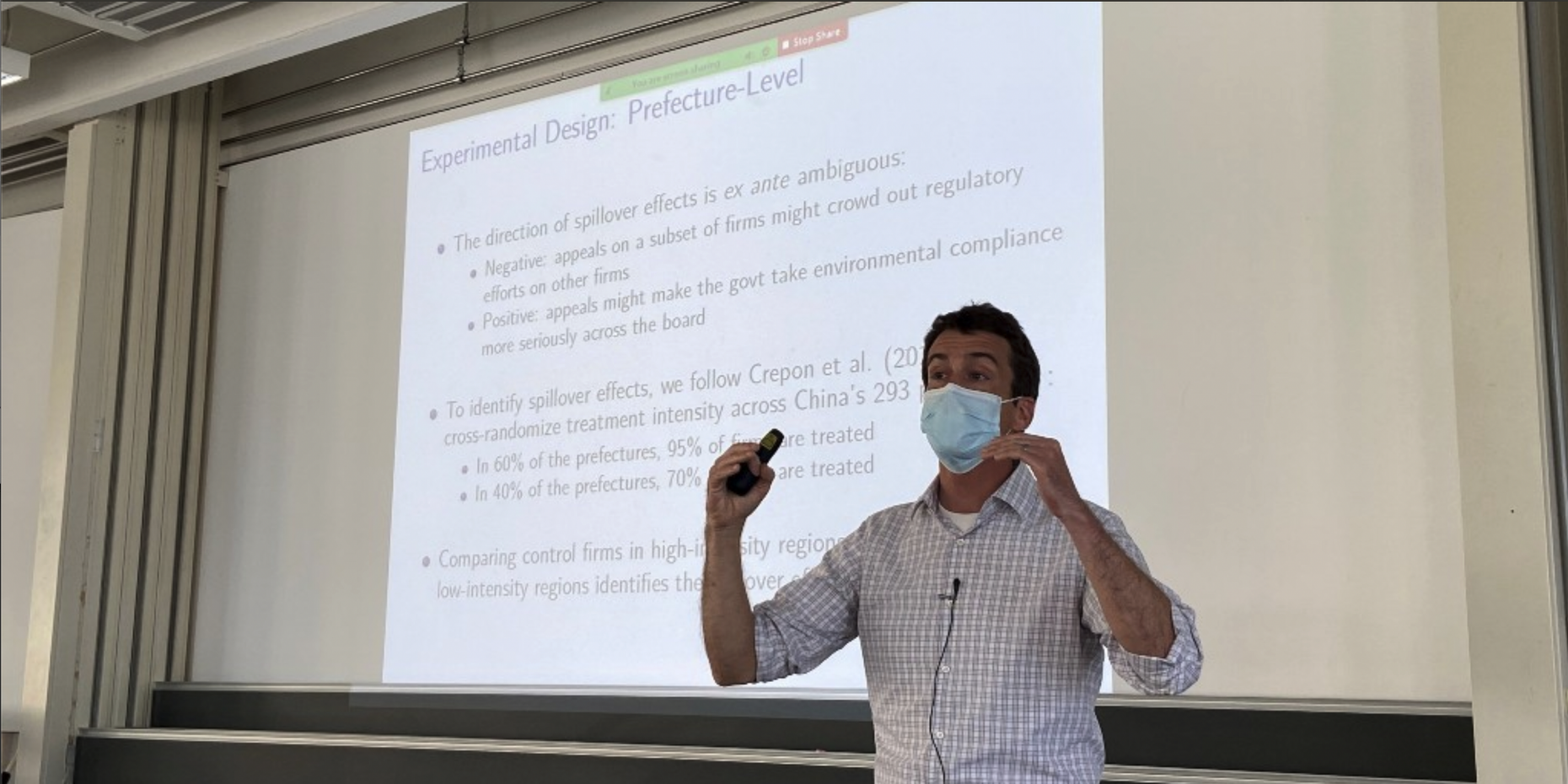Citizen Participation and Government Accountability: National-Scale Experiment Evidence from Pollution Appeals in China
Environmental regulations are undermined by widespread non-compliance by firms and enterprises. To understand this issue, Prof. Mark T. Buntaine and his team did a national-scale experiment in China. The results show that public appeals significantly decrease non-compliance incidents and that remarkable environmental benefits could arise from citizen participation in environmental governance.
by Sam Mattern and Shijie Hu

The Non-compliance Problem and the Chinese Case
Billions of people around the world live under extreme pollution, which has serious negative effects on public health, productivity, and well-being, to name just a few examples. Despite this, countries are not meeting the targets needed to reduce their pollution to the levels they have set for themselves, because of widespread non-compliance with the environmental standards. For this reason, many countries have begun to disclose corporate pollution in the hope that this will encourage their participation in environmental management. However, there is not much evidence on how or when such participation suffice meeting the pollution standards.
Professor Mark T. Buntaine and his team focused on China because it is one of the world's largest polluters and a country with abundant industrial activities. There are many violations of emission standards in China, averaging 3% violation rate per day. Although there is public pressure from citizens which is an important factor in regulating pollution, a lack of evidence remains on the types and channels of public engagement that drive government accountability. Therefore, this work by Prof. Dr. Mark T. Buntaine tries to explain how citizen participation affects government responsibility for enforcing environmental regulations in China.
A National-scale Experiment in China
To investigate this, a national-scale experiment was conducted with China's Continuous Emission Monitoring System (CEMS). This system detects pollution violations in real-time and covers more than 25000 heavy polluters in the country. The CEMS is applied to smoke pipes and water pipes, allowing the acquisition of data that tracks the flows and concentrations of key pollutants. There are also protocols to ensure the quality of the data, such as monitors, CCTVs, and algorithms to help detect anomalies in the data, and to take placebo samples with random timing. Governments are required to publish this data hourly, so people can see the allowed and emitted amounts for each company, and specifically determine if a company was out of compliance.
The study consisted of three main groups: the control group, the private appeals group, and the public appeals group. The control group did not undergo treatment. The results of the study showed that the private appeals, which were made by filing a complaint to the government and the firm through private channels, allowed for only a small improvement in environmental outcomes. The public appeals, which were made by posting on the Chinese public social platform Weibo, contributed significantly to the improvement in the environmental pollution of the companies studied. Violations from the latter were found to have decreased by as much as 40%, and air and water pollution by 13% and 14%, respectively.
Public Pollution Appeals Notably Facilitated Compliance
While private appeals only appeared to have marginal effects, public appeals have improved the situation significantly. Remarkable reductions from various pollution indexes were observed with public appeals. This study also found that, when the public appeals have more “likes” and “forward”, the regulator is more likely to give formal and detailed response as well as conduct on-site investigations. This could be explained by the hypothesis that publicity incentivizes the government to enforce regulations better. Additionally, this study also examined the possible spillover effect that appeals may crowd out government’s regulatory efforts on other firms, and found no evidence for such an effect. Overall, the national-scale study in China found that public appeals improves the enforcement of environmental regulations effectively, and significant environmental benefits could arise from citizen participation in environmental governance.
We would like to sincerely thank Professor Mark T. Buntaine for coming to ISTP and sharing this interesting study.
To get a broadened sense of the ISTP and our topics of interest and past seminars visit our Colloquia page.